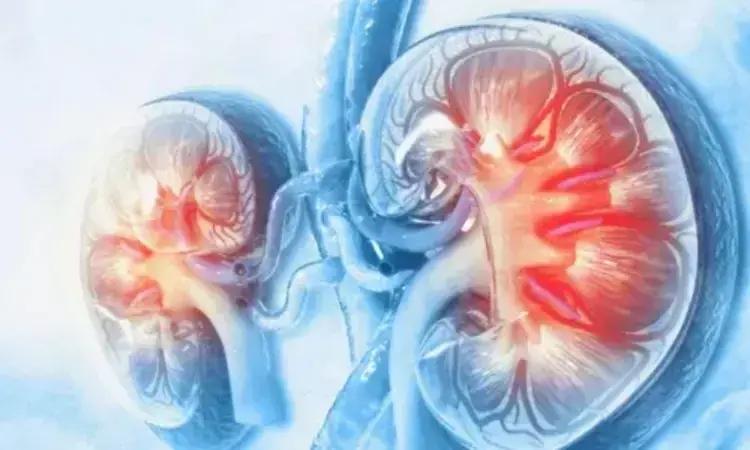Nutritional Status Scores Linked To 30-Day Mortality In Patients With Acute Kidney Injury
- byDoctor News Daily Team
- 17 July, 2025
- 0 Comments
- 0 Mins

New research illuminates the importance of nutritional indices, particularly the Prognostic Nutritional Index (PNI) and Geriatric Nutritional Risk Index (GNRI). These indices play a crucial role in predicting the risk of 30-day mortality in patients diagnosed with acute kidney injury (AKI). This study addresses a previously unvalidated aspect concerning the prognostic value of these nutritional indices in assessing in-hospital mortality risk for AKI patients.
This study was published in BMC Nephrology by Tingting Gao and colleagues. In this retrospective cohort study, demographic and clinical data from 863 adult AKI patients were sourced from the Medical Information Mart for Intensive Care III (MIMIC-III) database spanning the years 2001 to 2012. Univariate and multivariate Cox proportional regression analyses were employed to investigate the correlation between PNI and GNRI and 30-day mortality. The primary evaluation metrics were hazard ratios (HRs) and 95% confidence intervals (CIs). Additionally, subgroup analyses were conducted based on age, Sequential Organ Failure Assessment (SOFA) score, and Simplified Acute Physiology Score (SAPS-II).
The study revealed that out of the total patient cohort, 26.71% (222 patients) succumbed within 30 days.
After meticulous adjustment for covariates, it was observed that individuals with PNI values ≥ 28.5 [HR = 0.71, 95% CI: (0.51–0.98)] and GNRI values ≥ 83.25 [HR = 0.63, 95% CI: (0.47–0.86)] exhibited a significantly reduced risk of 30-day mortality.
This association held true even for patients aged ≥ 65 years. Notably, a higher PNI level correlated with a reduced risk of 30-day mortality in patients with SOFA scores < 6 or SAPS-II scores < 43.
Conversely, elevated GNRI values were associated with decreased 30-day mortality risk among patients with SOFA scores ≥ 6 or SAPS-II scores ≥ 43 (all p < 0.05).
Key Findings
The Prognostic Nutritional Index (PNI) and Geriatric Nutritional Risk Index (GNRI) have emerged as potential predictors of 30-day mortality in patients with acute kidney injury (AKI).
Patients with higher PNI and GNRI values had a notably reduced risk of 30-day mortality.
These associations remained consistent for elderly patients aged ≥ 65 years.
PNI appeared to be more indicative for patients with mild AKI, while GNRI showed stronger predictive value for those with severe AKI.
These findings underscore the clinical importance of nutritional status assessment in AKI patients, particularly in identifying individuals at a higher risk of short-term mortality. Further research may delve into optimising the use of PNI and GNRI as prognostic tools tailored to the severity of AKI.
Reference:
Gao, T., & Yu, X. (2023). Association between nutritional status scores and the 30-day mortality in patients with acute kidney injury: an analysis of MIMIC-III database. BMC Nephrology,2023;24(1). https://doi.org/10.1186/s12882-023-03329-5
Disclaimer: This website is designed for healthcare professionals and serves solely for informational purposes.
The content provided should not be interpreted as medical advice, diagnosis, treatment recommendations, prescriptions, or endorsements of specific medical practices. It is not a replacement for professional medical consultation or the expertise of a licensed healthcare provider.
Given the ever-evolving nature of medical science, we strive to keep our information accurate and up to date. However, we do not guarantee the completeness or accuracy of the content.
If you come across any inconsistencies, please reach out to us at
admin@doctornewsdaily.com.
We do not support or endorse medical opinions, treatments, or recommendations that contradict the advice of qualified healthcare professionals.
By using this website, you agree to our
Terms of Use,
Privacy Policy, and
Advertisement Policy.
For further details, please review our
Full Disclaimer.
Recent News
What Your Neck Size Says About Your Heart Health?...
- 04 November, 2025
EVOQUE TTVR Delivers Promising Real-World Results:...
- 04 November, 2025
Influenza Vaccination Reduces Mortality and Readmi...
- 04 November, 2025
Can Technology Make Kids Healthier? New Research S...
- 04 November, 2025
Daily Newsletter
Get all the top stories from Blogs to keep track.


0 Comments
Post a comment
No comments yet. Be the first to comment!